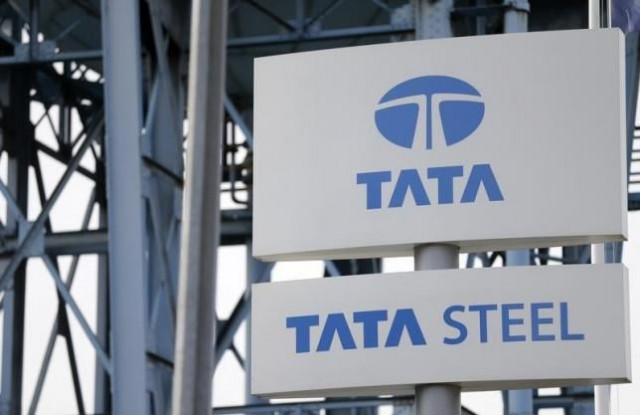Tata Steel sale underscores woes at India group's one-time star
Shockwaves rippled through British industry this week after Tata Steel said it would sell its UK business.

PHOTO: REUTERS
A string of deals since the turn of the millennium has seen Tata Group snap up a clutch of famous names including Tetley tea, luxury carmaker Jaguar Land Rover and steelmaker Corus.
India's Tata Steel puts British business up for sale
The Indian colossus, which spans more than 100 companies in as many countries, also runs the St James' Court hotel near Buckingham Palace, while software giant Tata Consultancy Services supplies almost a third of the FTSE 100.
Back home, Mumbai-based Tata's brands factor daily in the lives of Indians, with products ranging from salt to trucks to watches, helping generate more than $108 billion in sales in 2014-15.
"Tata is a household name in India, it's been around for more than a hundred years, it's one of the pioneers of industry in India," said Rajrishi Singhal, Senior Geoeconomics Fellow at Gateway House think-tank in Mumbai.
Indigenous growth: IIL now making large diameter steel pipes, tubes
Yet the group founded under British colonial rule in 1868 has hit headwinds of late, with lacklustre performances at several companies including Tata Motors, Tata Power and Tata Steel.
Ratan Tata, who took over as chairman of the family business Tata Sons, the group's holding company, in 1991, is credited with building it into a global behemoth.
The scion of the Tata dynasty embarked on a breathtaking shopping spree, acquiring assets including the United States' Eight O'Clock Coffee Co. and Daewoo Commercial Vehicle in South Korea.
At the height of Chinese steel demand in 2007, Tata paid a staggering $13.7 billion for the Anglo-Dutch steelmaker Corus Group, saddling itself with vast debt.
The following year the global financial crisis brought the world economy to its knees.
Eight years later, the recovery still looks patchy, and the steel industry is in crisis.
A sharp slowdown in China, the world's largest consumer and producer of steel, has led to a flood of cheap exports, hurting steelmakers elsewhere.
"Historically Tata Steel was always a flagship company in the group," said Pradip Shah, Chairman of IndAsia Fund Advisors, an investment advisory firm, and a board member of Tata Investment Corporation.
"But in the last five to six years it became visible in the Tata portfolio not as a success story, but as a problem story," he told AFP.
Legendary industrialist and group founder Jamsetji Tata founded India's first modern steel plant in 1907, in a village that became the bustling company town of Jamshedpur.
When India started opening up its economy to foreign investment in the 1990s, leading to increased competition, the group began acquiring assets abroad to gain clout.
Since 2012 Cyrus Mistry has been at the helm, the first non-family member to hold the role of group chairman -- although he is related to the Tatas by marriage.
As it continues to expand in India's fast-growing economy and overseas, Tata says it wants to take its products to a quarter of the world's population by 2025.
Some of the group's ventures have paid off, and reaped dividends for Britain.
Kashmir traders meet on LoC
Luxury car brand Jaguar and SUV marque Land Rover, based in Coventry in central England, have undergone a renaissance in sales since Tata bought them from Ford in 2008 for $2.3 billion.
JLR last year announced it was investing £600 million in manufacturing more cars in the UK.
Meanwhile, Tata Consultancy Services, seen as the group's standout performer and cash cow, employs 11,000 people in the UK alone.
It has been a different story at Tata Steel, however, with one plant, Port Talbot in Wales, said to be losing £1 million a day.
Yet Wyn Grant, professor of politics at Warwick University, said Tata still retains goodwill in Britain thanks to the investment it has brought.
"I think they have a positive image of a good company, and they do not take the blame, because they are losing money, but the government does."



















COMMENTS
Comments are moderated and generally will be posted if they are on-topic and not abusive.
For more information, please see our Comments FAQ